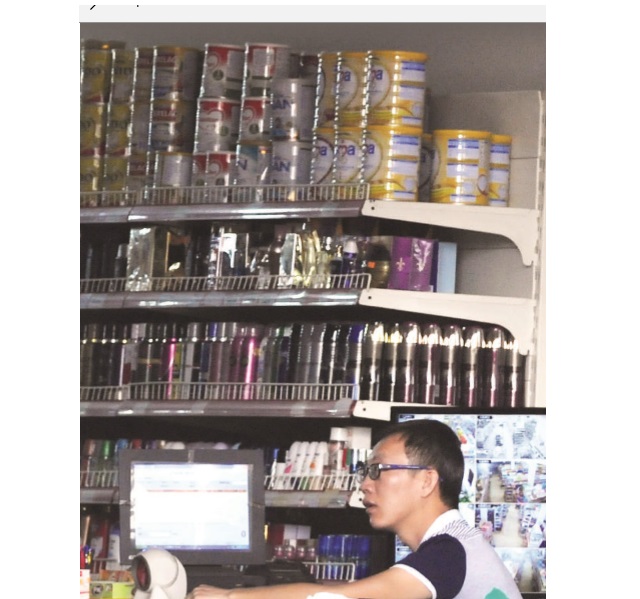
Indians, local traders struggle as red dragon invades retail
If any one place can be described as the heartbeat of Uganda’s retail business, it is Kikuubo Road; a half kilometer road in down town Kampala, that is an open market yard.
At any time of day it is so packed with people that there is barely any standing space on the narrow street lined with three and five story buildings constructed like tunneled towers lined with tiny shops in which merchants scurry from one deal to another, haggling over prices, and barking orders to loaders to quickly empty or fill transport trucks.
Hajji Mohammad Katimbo, who runs MHK General Agencies Ltd, is one of the top merchants of Kikuubo. He is also an encyclopedia of the place and, as head of the Kikuubo Business Community – an association of the local traders – is a good source of information on its comings and goings. And he does not like what he is seeing currently.
According to Katimbo, although trading in Kikuubo was started in the 1960s by locals who could not afford shops on the city main streets dominated by rich Asian traders, the locals are now fighting to retain it against an onslaught of a new creature – the Chinese trader.
At stake is the control of business with sales estimated between US$ 5 and $ 8 billion, according to a September 2016 report by the Uganda Retail and Wholesalers Association (URWA). These figures cover all retail and wholesale across the country; from super markets, hypermarkets, and small retailers and, although it is rarely discussed as such, Kikuubo is the biggest piece of it.
Until now, retail trade has been the bastion of local entrepreneurship because it requires relatively smaller amounts of capital to start and offers more opportunities for employment than agriculture which requires land.
So, for locals losing the retail niche means losing money, opportunity, pride, and jobs; especially given that Chinese enterprises bring in their own army of workers from China.
Katimbo says, as matters stand, locals have very limited chances against the Chinese who have one of the biggest weapons in this business—pricing.
“These guys (Chinese) are gaining control of the whole chain. They manufacture, they do wholesale and they do retail,” says Katimbo.
“They buy at factory price, sell to us at wholesale price but then go to the market and sell one piece at even lower prices making it impossible for our traders to compete.”
Because of this, he explains, local traders who already face high taxes and high rent, are struggling to survive.
To get a taste of Katimbo’s nightmare, one has to move just a few metres, past one or two shops to Amay Sincerity Investment Ltd, Brother Shop. Amay’s entrance is as small as the size of a double door and not as imposing as one would expect from one of the largest businesses in Kikuubo.
Even inside is not that imposing; just one large room with another backroom, square and about 10 by 10 metres, with low ceilings and high shelves packed with goods; from carpets to beddings, plastics to metal pans and glassware, cutlery, toys and a lot, lot more.
However, even if the place would be quite small elsewhere, here it is quite big because Kikuubo is one of the most expensive pieces of real estate in Kampala and every square metre counts. Most traders doing sales in millions of shillings daily have stalls the size of two phone booths. Everything is merely a display for goods kept offsite in huge warehouses and traders constantly replenish stocks as they sell.
We go past the counter manned by a Chinese woman punching incessantly on the computer and dropping bundles of cash into a safe, and move towards more Chinese pacing about, supervising local attendants.
My guide, Richard Kabaale, picks up a wine bottle holder and in Luganda; the local language, asks one of the Chinese how much it costs.
“Sixteen thousand,” the Chinese answers in Luganda.
“You see,” Kabaale says with a grin, “I told you, these guys have come here to conquer Kikuubo, they haven’t been here long but they even speak Luganda.”
Kabaaale has worked in Kikuubo for over five years. He says the same wine bottle holder costs Shs 25,000 only a few metres away in a shop run by locals. Another Chinese supermarket had an array of toys made in china, with the most expensive at Shs. 50,000 and the cheapest; a toy car at Shs1000; the same as a bottle of CocaCola. The Amay shop has about 10 Chinese on its floor.
Once outside the shop again, local loaders supervised by Chinese are putting hundreds of boxes of goods on two trucks, one packed right in front of Amay and another in front of the shop that is directly opposite. The two shops were all acquired last year by Chinese traders, according to Kabaale. The Chinese are quite busy.
 The Independent Uganda: You get the Truth we Pay the Price
The Independent Uganda: You get the Truth we Pay the Price



It’s in every nations interest to protect its citizens. Anyone that has doubts should check what the current US President said; “America first”. Amin did the greatest service to Uganda when he asked the foreigners to leave. It’s the duty of the nation to protect its citizens, and as such, there should be laws that regulate the entry, activities and stay of all foreigners in the country. If a country chooses to put foreigners ahead of it’s own citizens, then there is a problem. And that seems to be the trend right now in UG.